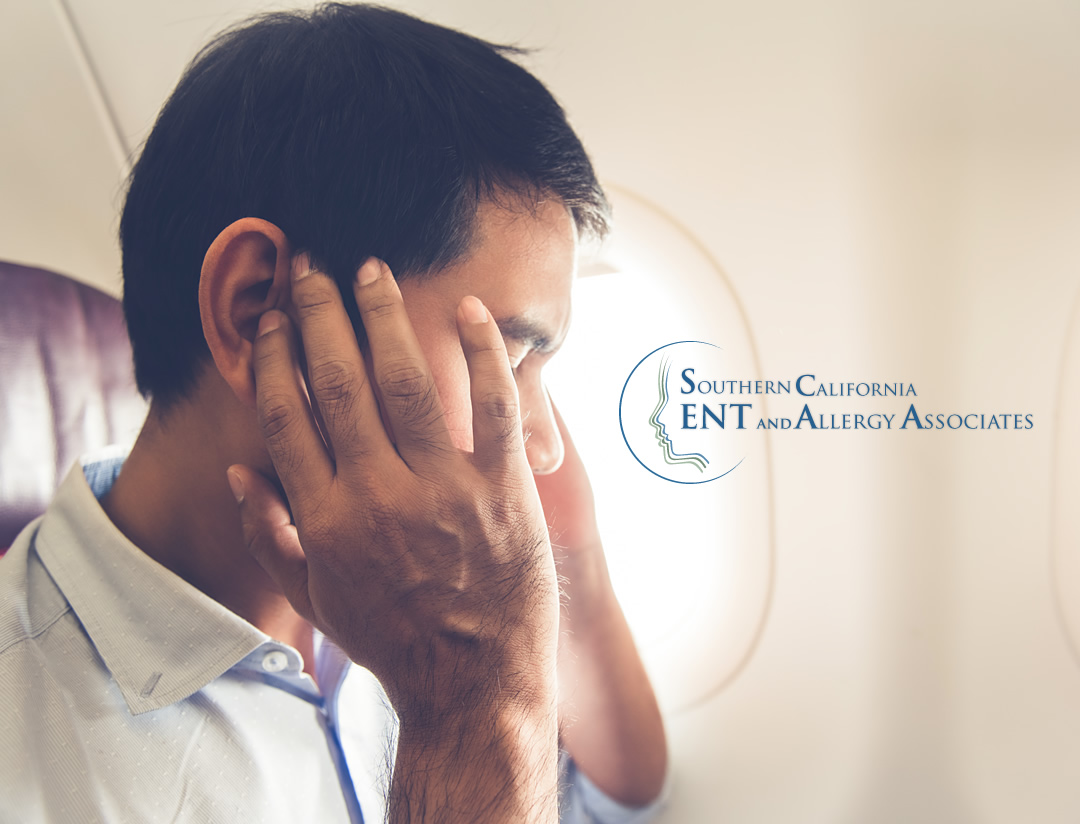Fear Of Flying

With the year-end holidays coming up, some people are already dreading their upcoming air travel; unlike most travelers, they are not concerned about the long security lines, the delayed flights, the cramped seats in the planes or the rude fellow passengers. What makes them uneasy is the painful ear pressure and blockage, or sinus pain, that they feel right after the pilot announces that the plane has begun its descent for landing.
Studies reveal that about 30% of fliers feel ear pain due to changes in air pressure, and the percentage of sufferers increase dramatically if they suffer from allergies or fly with a cold or flu. The pain is caused by unequal pressure that develops between the air in the middle ear and the air outside the ear. There is a tube that connects the back of your throat to the area just behind your eardrum that is called the eustachian tube. The eustachian tube function is to equalize the pressure in the air behind your eardrum with the air around you. In some people, because of inflammation or infection, swelling around the tube will occur causing the tube to not function properly.
Dr. Bublik, triple board certified in otolaryngology, allergy, and facial plastics, urges his globetrotting patients to avoid flying when they are congested from a cold or allergies. Dr. Bublik warns patients that in the most severe cases, flying when one is congested may lead to a permanent decrease in hearing, prolonged dizziness, or severe pain or sinus pressure.
Dr. Bublik offers the following helpful tips to maximize the ability of the eustachian tube and sinus passageways to work when the plane is descending for landing:
- Spray a nasal decongestant, such as Afrin, twice into each nostril one hour prior to boarding the plane.
- Purchase “airplane” earplugs, which are available in airport shops and drug stores, and insert them into your ear to help equalize the pressure of the ear canal with the cabin.
- Begin taking a decongestant, like Sudafed, one hour before the flight (consult your own physician before taking any over-the-counter decongestant).
- As the plane descends you will want to “pop your ears” by blowing through your nose while firmly pinching your nostrils. This creates pressure in the ears and helps to equalize it with the changing pressure in the cabin. Sometimes swallowing can achieve the same goal of equalization of the ear pressure making the previous maneuver unnecessary. Chewing gum or sucking a liquid through a straw is also helpful.
- Wake up an hour before landing. This will give your ears time to adjust to the descent and change in air pressure. Also, being awake means, you will be able to follow the other tricks when the plane is getting ready to descent.
If you suffer from a condition that affects your ears, don’t delay in scheduling a consultation with Dr. Bublik. He is a board-certified otolaryngologist and has been able to effectively help patients with ear disorders or conditions such as hearing impairment, ear infections, disorders that affect balance, tinnitus (ringing in the ears), ear pain and congenital disorders of the ear.
